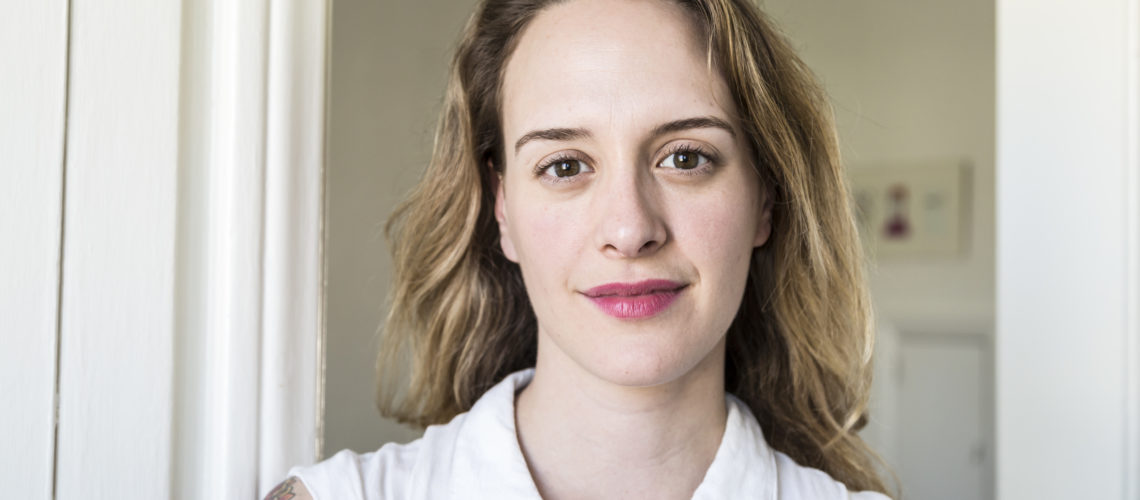
Emily Gould (Class of 2004, Eugene Lang College) is the author of a memoir ( And the Heart Says Whatever , 2010) and a novel ( Friendship: A Novel , 2014) as well as numerous essays, reviews and profiles. She also edits and acquires books for the Emily Books imprint of Coffee House Press.
Q. How did you imagine your writer’s life when you were a student at Lang and how has the life you’re living fulfilled and/or diverged from that fantasy?
I think when I was in college I thought that “real writers” mostly wrote during the day and went to parties and bars with other writers at night. And then right after I graduated from college and I was working at a publishing house, I couldn’t wait to shock everyone I worked with by selling a book for a lot of money so I could quit being an editor and go be a “real writer.” A couple of years and jobs later, when I did become a freelance writer, I was shocked to realize that this untethered lifestyle actually made me fairly miserable (also broke). When I have nothing to do but write, I start inventing increasingly complex excuses to avoid writing. But when I’m almost too busy to write, working on projects that involve collaboration (like editing) and responding to the needs of other humans in real time (like teaching), I am a happier person. Whether or not I’m a better or more productive writer when I’m almost too busy to write remains to be seen.
Q. How does your ability to look deeply into the most personal elements of your own life supply the imaginative spring that feeds your work in fiction?
For me, fiction starts to happen after I’ve tried and failed to address something with straightforward personal writing. Some things are so hard to write about that I have trouble even being honest with myself about them, and fiction can be a way of tricking myself into feeling more free.
Q. What is it about being a writer in New York that keeps you here in spite of all the hardships and uncertainties of living a creative life here? Is it the history? The industry? The community? All of the above?
I am fortunate that I’ve been able to hang in here in New York for so long, sometimes by the skin of my teeth. I’ve forged friendships and community ties that make me feel safe and happy and connected to the world around me, and with every new role I take on in life (editor, teacher, mom, etc) I meet a new group of amazing, driven, super-talented people. And I felt #blessed after this past election to live in a place where I could walk out of my building on November 9 and see my neighbors crying and comforting each other, and we could all know that we felt the same way about, for example, the importance of women’s and black and brown people’s lives. It
was a small consolation on the one hand, but on the other hand I can’t imagine living in a place where that wouldn’t have been the case.
Q. What advice might you give to a young writer in the complicated world of New York’s literary scene?
For me, working in publishing has been transformative. I feel lucky to have experienced the literary world from both the publishing side and the academic side. I feel especially lucky to have begun my career as an assistant to a genuinely brilliant mentor. Being an assistant can suck — it almost inevitably does suck, actually — but there’s no faster way to learn.
Q. Finally, I noticed in an online profile that you’ve begun teaching. Do you think teaching people to write can teach you things about your own writing you may not have been otherwise aware of?
Oh my god, definitely. I learn from my students all the time — I get a lot of insights into how they read and also learn about the writing process by seeing what trips them up and how they overcome their obstacles. I also learn slang terms that I had no idea existed and I have to look them up on Urban Dictionary and then I feel very, very old.